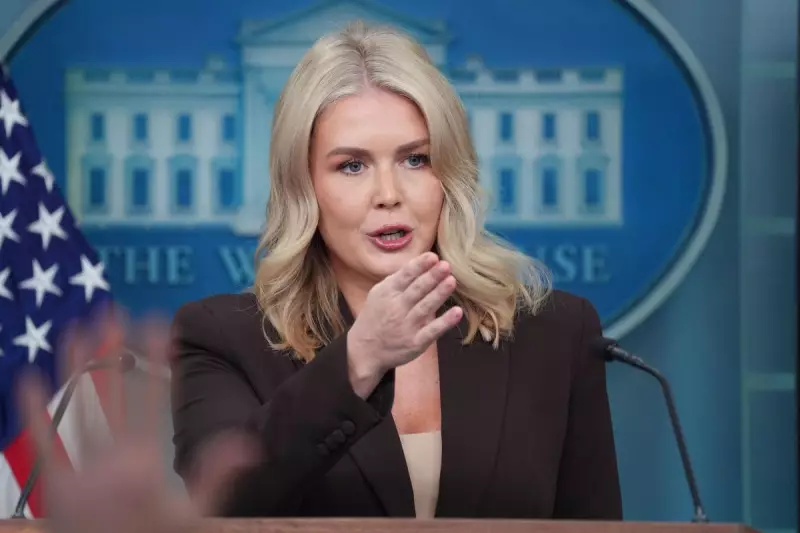
A dramatic confrontation erupted between Trump campaign spokeswoman Karoline Leavitt and a White House reporter, exposing deepening tensions between the former president's team and the press corps.
The heated exchange occurred when Leavitt was questioned about controversial election claims, prompting an aggressive response that has drawn criticism from media observers and political analysts alike.
Contentious Exchange Goes Viral
Eyewitnesses described the scene as increasingly tense as Leavitt challenged the reporter's line of questioning, accusing them of biased reporting and refusing to engage with what she characterised as "misleading" inquiries.
The incident, captured by multiple news organisations, quickly spread across social media platforms, drawing mixed reactions from political commentators and the public.
White House Responds with Disapproval
White House officials have expressed concern about the deteriorating relationship between the press and political operatives, with one senior aide describing the incident as "counterproductive to democratic discourse."
"When spokespeople attack reporters for simply doing their jobs, it creates a chilling effect that ultimately harms public understanding," the official stated anonymously.
Background of Escalating Tensions
This incident represents the latest in a series of confrontations between Trump campaign representatives and journalists covering the 2024 election cycle. Relations have been particularly strained over coverage of election integrity claims and legal challenges facing the former president.
Media advocacy groups have documented an increase in hostile interactions between political staff and reporters, raising concerns about press freedom and the safety of journalists covering political campaigns.
Broader Implications for Political Communication
Political communication experts warn that such confrontations could have long-term consequences for how information reaches voters during a critical election period.
"When campaign representatives become combative with legitimate media inquiries, it undermines the transparency that voters deserve," noted Dr. Evelyn Reed, professor of political communication at University College London.
The incident has sparked debate about the appropriate boundaries between political operatives and the journalists tasked with holding power to account.





